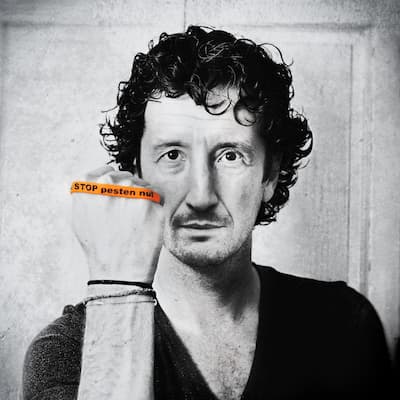Trips to the playground aren't always drama free. You may find yourself dealing with snarky parents, mean kids, or your own child misbehaving. Experts offer ways to deal with these common playground issues.
I'm sure you've been there as a parent. You're at the playground and suddenly another mom yells at your son. Or maybe your daughter is the culprit and she's being mean to another little one. Then there's the clique-y kids who won't let your child play with them. What's a parent to do? Experts offers tips on how to handle key situations like these that can make a trip to the playground a nightmare.
The situation: Another parent reprimands your child.
Tell the parent, "Thank you for looking after the kids," and then remove your child from that scenario, suggests Bill Corbett, a behavior coach and author of Love, Limits & Lessons: A Parent's Guide to Raising Cooperative Kids. Redirect your child's attention to another activity. "It's your chance to model handling conflict appropriately," says Corbett. By being the bigger person, you're showing your child sometimes it's smarter to walk away.
The situation: A child is being mean to your child and their parent isn't doing anything.
If your child's safety is not at risk, avoid running in to protect your kid immediately, says Corbett. That's something Joanne Kimber, a mom of two in Madison, Wisconsin, always reminds herself. "When I see someone being mean to my child, I immediately want to run in and reprimand that other child," she says. "But I give it a few minutes; sometimes with kids things last a few minutes and then it's over." If the other child is escalating things—taunting, saying mean words, or getting physical—then Kimber removes her child from the situation. "I'll take him to the swings or another part of the playground," she says.
Corbett encourages Kimber's approach. And as hard as it may be, he says you should also avoid talking to that child’s parent, which can trigger an argument and possibly cause a scene. “Your focus should not be about being right, but instead, making the experience the best learning opportunity for your child,” he adds.
After the interaction, help your child verbalize their feelings and give them skills they can use if they are ever in the same situation again. "You want your child to learn how to stand up for himself verbally and not physically, no hitting or attacking. We want him to learn to say to a bully, 'I don't like it when you're mean to me,' or 'I won't let you speak to me that way,' and then walk away," says Corbett.
The situation: Your child is teasing another child and won't stop.
Address it immediately, says Christa Terry, co-founder of Mom Meet Mom, a website aimed at connecting moms of like-minded interests. "Feel free to apologize both to the kid and his parent," says Terry. Most parents will understand—their kids probably have done the same thing at least once in the past. Then take your child to a quiet part of the playground and explain why their behavior is unacceptable.
The situation: A group of kids, including yours, start arguing while on the jungle gym.
Unless it comes to hitting, bullying, or outright cruelty, avoid the impulse to jump right in, says Terry. "Watch closely to make sure no one is going out of bounds but remember that conflict resolution is an important skill, one that kids start developing on the playground." If it escalates, redirect your child to another activity. When she calms down, talk to her about the situation and her role in it.
The situation: An angry parent approaches you about your child.
Sometimes playground conflicts are a he said/she said kind of situation and it's not entirely clear who was in the right. In that case, try to be calm and generous, suggests Terry. This parent may have other things going on in their life which may be influencing their perception of what's going on. Try not to rise to this parent's level. Simply hear the parent out and give them the benefit of the doubt. Then take your child to a different part of the playground.
The situation: The other kids won't play with your child.
As a parent, nothing feels worse than having your child excluded. But ultimately you can't force other kids to want to include your child. If it doesn't seem to be bother your child, let him continue playing independently.
If it's clearly hurting his feelings, try to get your child to focus on a different activity like playing in the sandbox. If that doesn't work, leave to do something else. Then talk to your child openly about the situation and his feelings. Kids are pretty resilient and get over things quickly. You may be more upset about it than he is.
Tip van de redactie
Heb je haast? Navigeer dan snel naar:
► Scholen & Professionals Kenniscentrum Pesten in het Onderwijs
- Of navigeer direct naar de informatie per functionaris: Schooldirectie & MT / Anti-pest coördinator / Leerkracht / Mentor / Ouderraad & MR
- Leerlingen & opvoeders: Kinderen & Jongeren (Leerlingen) / Ouders & Opvoeders
► Sportverenigingen Kenniscentrum Pesten in de Sport
- Of navigeer direct naar de informatie per functionaris: Bestuurders / Coaches, Trainers & Begeleiders / (Top)Sporters & Scheidsrechters
- Jonge leden & ouders Kinderen & Jongeren (Leerlingen) / Ouders & Opvoeders
► Werkgevers Kenniscentrum Pesten op het Werk
- Of navigeer direct naar de informatie per functionaris: Directie en bestuurders / HRM / MT en Leidinggevenden / Medewerkers / Ondernemersraden / Vertrouwenspersonen
► Ouderen Kenniscentrum Pesten in Woonzorgcentra

Breng snel een bezoekje aan ...
► Kenniscentrum (Klassiek) Pesten
► Kenniscentrum Online pesten (cyberpesten)
► Kennisbank & Downloadcentrum o.a. Beleid & Factsheets / Handleidingen / Lesmaterialen / Posters / Wetenschappelijke Onderzoeken
► Ik word gepest, wat kan ik doen
Stichting Stop Pesten Nu is het enige Erkende Goede Doel tegen Pesten in Nederland!







